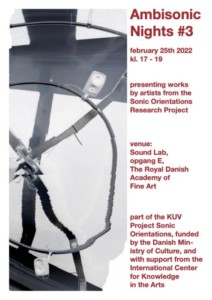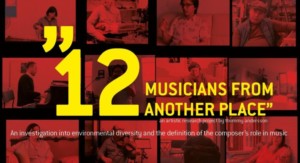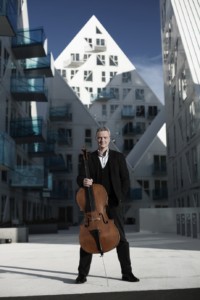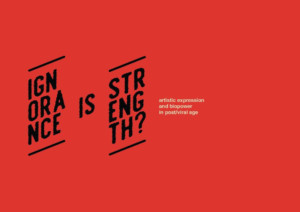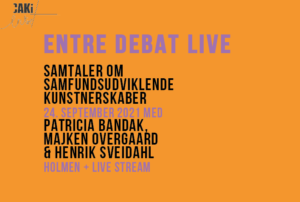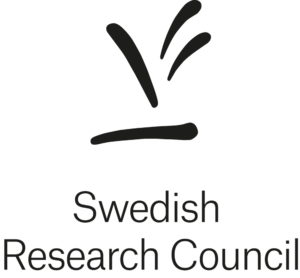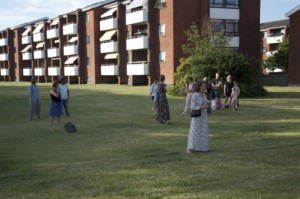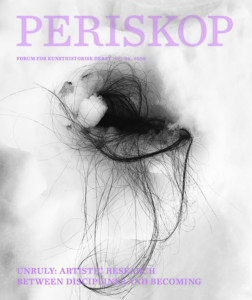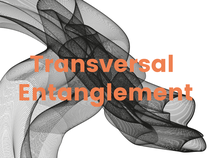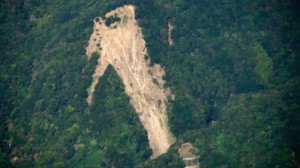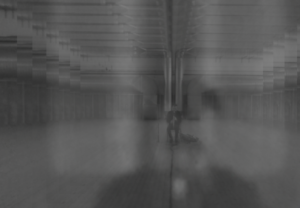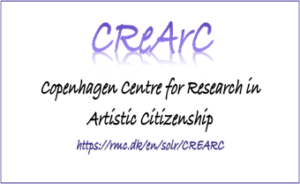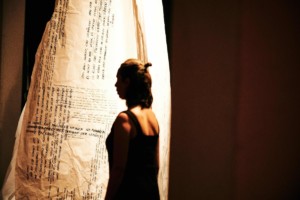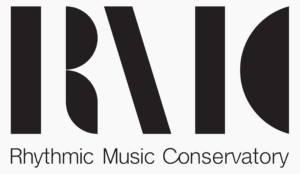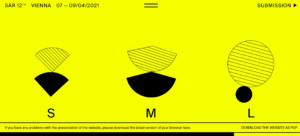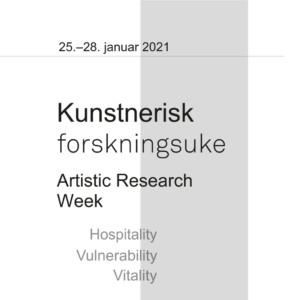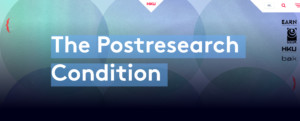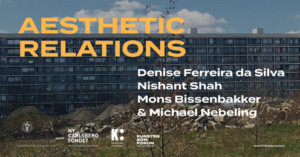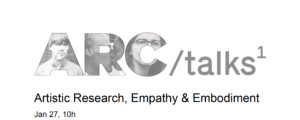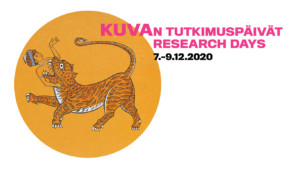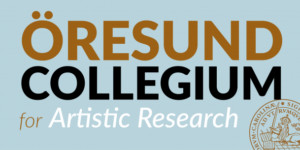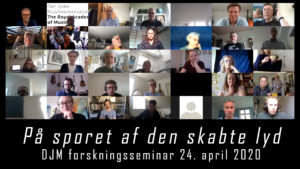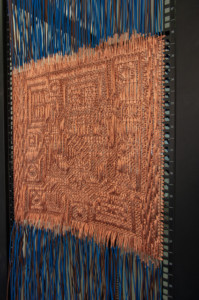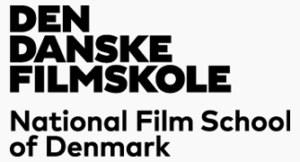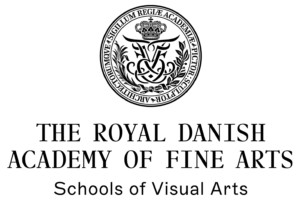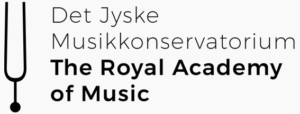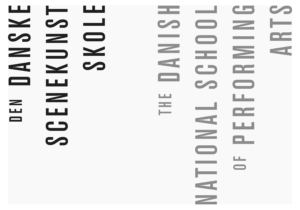Network
The International Center for Knowledge in the Arts is a network in itself, consisting of the seven member institutions and the many projects that are developed within the various disciplines (see the Artistic Research archive). Methodology, theme and aesthetics are interwoven across disciplines. This page provides you with an insight into many of the events that take place in the individual institutions, including concerts, performances, exhibitions or other public presentations of Artistic Research projects.
The network extends beyond Denmark and there is an impressive international effort in the field. So, on this page we also share relevant events, open calls, publishing etc. from the international community. In the menu item on the left-hand side under ‘Resources’ there are also links to publishing platforms, organisations and other relevant parties within the field of Artistic Research.
Imagining (the Imagination of) the Other! is a choreographic enquiry that approaches the child as choreographer and as choreographic material; as a capable performance maker as well as a particular presence on stage; as someone who is taken seriously as a contributor of meaning.
Through practical intergenerational collaborations, the project rejects expressive movement in favour of expressive concepts and task-dance. It proposes an artistic enquiry that focus on the child-adult relation as aesthetic subject and aims to develop ways of collaborating, that do not favour one set of experiences over another.
This performance iteration deals specifically with ways of seeing and being seen.
time & place
19 March 13:00
The Danish National School of Performing Arts
Sal 1, DDSKS København
Philip de Langes Allé 3
1435 København K
SixtyEight Art Institute welcomes you to a talk between artist Christina Marie Jespersen and editor/curator Maria Kjær Themsen, in connection with Jespersen’s current solo exhibition because it trembles, curated by Rebekka Elisabeth Anker-Møller. The exhibition presents Jespersen’s artistic research project (KUV) Book, work & materiality, which has been part of her work at The Royal Danish Academy of Fine Arts over a 3-year period.
Talk: Friday, 17 March, 16:30 - 18:00
Place: Gothersgade 167, Kbh K
Christina Marie Jespersen
Curated by Rebekka Elisabeth Anker-Møller
24 February - 25 March 2023
SixtyEight welcomes you to because it trembles by Christina Marie Jespersen. The exhibition presents her artistic research project Book, work & materiality which has formed part of her work at The Royal Danish Art Academy over the last 3 years. because it trembles explores the creation of meaning across materiality and discourses which bring a vibrating universe of politics, statistics, bird eggs and open ear canals into the exhibition space.
Opening: Friday, 24 February, 18:00 - 21:00
Address: Gothersgade 167, Kbh K
This special issue is the result of two processes that approach artistic research from the domains of artistic practice in film and its implications for research in film education institutions. The first part of the editorial describes the impetus for the conference Transversal Entanglement - Artistic Research in Film organized and hosted by the Institute for Artistic Research IKF1 at Film University Babelsberg, with considerable support from GEECT2, which took place from 3-5 June 2021 - on site and online. The second was through an open call for papers on the topic of artistic research in film and audiovisual media which aimed to augment and expand the scope of the submissions generated from the conference.
Read the issue here.
MA David Hilmer Rex will be defending the dissertation Artistic practice and systems change: A mission-oriented sector of art
The dissertation will be available for reading in a digital version before the defence following a statement from the borrower promising to delete the file afterwards. If you wish to read the dissertation please contact David Hilmer Rex at dhr@cc.au.dk.
The defence is scheduled for three hours and is open to the public. All are welcome.
October 7th, 1pm-4pm @ Aquaporin, Nymøllevej 78, 2800 Kongens Lyngby
What does it mean to invite people who have not chosen dance as their profession, people we call children, young people, and others, to meet in the choreographic process? To dance, to perform, to choreograph together? What could it mean?
Taking Laura Navndrup Black’s Artistic Research project "Imagining the imagination of the Other" as a starting point, this four-day symposium invites participants to (re-)approach the idea of access within the field of participation and choreography.
The symposium emphasises shared practical speculation and requires every participant to take part in all sessions. The programme alters between workshops and presentations and concludes with a collective reflection session facilitated by Lisa Nyberg (SE).
Solveig Styve Holte (NO), Alice Chauchat (FR/G), Gillie Kleiman (UK), Deborah Macedo (BRA) and Laura Navndrup Black (DK) will share selected aspects of their work and research through practice, discussions and presentations. Together we will think up ways to meet across, dive into or move beyond difference.
October 12th-15th @ The Danish National School of Performing Arts
In connection with Copenhagen Architechture Festival 2022, which this year has the theme “Sense of Place”, Kunsthal Charlottenborg invites you to a talk from a curatorial point of view about 'Sense of Place' in the contemporary art exhibition. The Lithuanian curator Raimundas Malašauskas, one of the biggest names on the international art scene, talks about his curatorial experiments. Kunsthal Charlottenborg's curator Henriette Bretton-Meyer and curator Charlotte Sprogøe, who curated the Kunsthal Charlottenborg’s off-site summer exhibition Copenhagen, talk about their curatorial view of how art today plays together with the places it occupies and the contemporary times it is a part of.
The event is free and the talk will be in english.
5th of October, 5pm – 7pm @ Charlottenborg Art Cinema
An Advanced Practices Programme Event in Collaboration with SixtyEight Art Institute
10 September 2022
LOCATION:School of Visual Arts, Royal Danish Academy of Fine Arts in the Hirschsprung auditoriet.
Peder Skrams Gade 2 opgang A, 3. sal.
(please follow the signs posted outside the building)
SixtyEight Art Institute is pleased to announce a two-part talk/workshop event, ‘Absent Audience: Practising Terminology,’ organised in collaboration with The Advanced Practices programme at Goldsmiths, University of London, The International Center for Knowledge in the Arts and the Laboratory for Arts Research, The School of Visual Arts, Royal Danish Academy of Fine Arts.
The Absent Audience project emerged from the Practice Laboratory of the program. Led by group members, the talk presents the two years of collective research about the 2nd Johannesburg Biennale curated by Okwui Enwezor in 1997. The presentation digs into “diffractive case study” research, which as a notion and methodology, engages with the multiple and fragmentary knowledges of the event, using the latter as a portal to know adjacent, opaque, distant or parallel narratives that are potentially present in or around the event itself, but often repressed by dominant systems or mundane status quos.
The talk develops around a series of questions: What does it mean to be an audience of an event displaced from us (as potential publics) both geographically and temporally? How can we reactivate the forces of the event starting from the urgencies of our space and time? Can the terminology emerging from the research become a tool to disseminate and diffract the different trajectories and lines of flight from the event?
Schedule for this two-part event:
11.00 - 13.00: Joint the talk by the Advanced Practices Lab.
Presented by: Anne Julie Arnfred (Roskilde University and Goldsmiths), Gema Darbo (Goldsmiths), Zoe Keller (Goldsmiths), Francesca Lazzarini(Goldsmiths), and Vaida Stepanovaite (Goldsmiths). This presentation will be followed by a talk by the visual artist and researcher Sarah Pierce. The closing discussion between all researchers will be moderated by artist Hugo Hopping(SixtyEight Art Institute). This talk is open to the general public and requires no reservations.
14.00 - 17.00: Workshop’ Practising Terminology.’
This joint workshop will be an opportunity to work directly with the organisers and researchers of the event. Considering the open-ended nature of the Absent Audience project, ‘Practising Terminology’ is a workshop that draws from the methodologies and notions presented during the talk to expand them with the participants. Through a diffractive approach and positioning ourselves as the absent audience of each other’s practices, the workshop involves the participants in a series of discursive activities articulated around a terminology graph produced in the Absent Audience project. The aim of ‘Practising Terminology' is twofold: on the one hand, it will make the methodologies available to the practitioners as tools for reflection on their own works. On the other hand, it proposes to share and expand the research knowledge through the participants’ multiple knowledges.
ON THE ORGANISATION OF THIS EVENT
Absent Audience: Practising Terminology is organised as a collaboration between the SixtyEight Art Institute and the Advanced Practices programme at Goldsmiths, University of London, to learn from the reciprocity of two entities immersed in questions of research-based knowledge and its publics in the cultural field. The ‘Absent Audience’ framework was first outlined as a two-day Goldsmiths virtual conference in June 2021, with keynote speakers Gabi Ngcobo and Sarah Pierce.
The event is made possible with the generous support of COST for Short Term Scientific Mission and the Department of Visual Cultures at Goldsmiths College, University of London, The International Center for Knowledge in the Arts and the Laboratory for Arts Research at the School of Visual Arts at the Royal Danish Academy of Fine Arts.
HOW TO PARTICIPATE IN THE WORKSHOP
This workshop is for artists, curators, and, more broadly, researchers in the cultural field interested in research-as-practice, exploring how to work with the idea of absent audiences and the diffractive case study in practice. We're looking to put together a dynamic group of workshop participants whose work and research will engage productively with the day's presentation. Therefore, seats are limited and available through an open call until 2 September 2022.Please send your name, affiliation, and a 150-word statement framing your research to info@sixtyeight.dk.
We will confirm your participation on or before 4 September.
Anne Julie Arnfred is a curator of visual art and PhD fellow at Roskilde University (2019-2022) & Visiting PhD fellow at Advanced Practices Goldsmiths (2019-2022). She received the Elite Research Travel Grant 2021 from the Danish Ministry of Higher Education and Science and has several years of experience as a curator at well-known Danish art institutions such as Nikolaj, Copenhagen Contemporary Art Center (2007 - 2016) and The Museum for Contemporary Art, Roskilde (2016 - 2017). Arnfred works in between various knowledge-based practices, questioning how we know, how we practise, and what we consider valuable to evaluate.
Gema Darbo is a curator and a researcher based in London. Her practice is informed by aspects of visual culture, digital humanities and the production of curatorial knowledge. As a researcher, she questions individuation in curatorial practices while exploring transdisciplinary, co-relational and collaborative modes of creation and transmission of knowledge. Darbo is co-initiator of Widephoto, a non-profit curatorial platform that led a series of initiatives for the exchange, learning and debate of contemporary photography in Barcelona. She is granted a curatorial residency in Spain institutionally supported by Matadero, Loop, and Fabra i Coats, where she is currently working on an exhibition that will take place at Center d'Arts Santa Mónica in September 2022.
Jiaying Gao is a fellow PhD student in the Advanced Practices programme at Goldsmiths University of London, UK. Her research investigates the intersection of the body perceptions and the archives, particularly within the frame of Dance museums. She has an extensive research experience in the fields of Chinese dance, as well as cultural and ethnic policies and their impact on social and economic development at local, national and international levels. Gao is currently undertaking a practice-based project that aims to extend and reflect the performativity of identities and affects in dance archives.
Zoe Keller is a researcher (Advanced Practices Goldsmiths - 2019-2022) and an assistant curator based in Geneva. Her research interests expand around matters of collections and archives and their multiple articulations between the poetic and the political. In the past years, she has been involved in different art institutions, such as HEAD-Geneva (University of Art and Design), MAMCO (Museum of Modern and Contemporary Art – Geneva), Le Centre de la Photographie Genève, and The Warburg Institute in London. She is currently leading a collaborative publication project with the artist Batia Suter using a found collection of ‘archetypal’ images.
SixtyEight Art Institute is an artistic/curatorial research organisation looking to uncover, develop, and further exchanges between artists and curators and their creative labour. Currently on view They Say We Are Seeking to Understand What's Been Going On with artists Anastasia Sosunova and Jeremiah Day, curated by Caterina Avataneo, and open until 20 August. This exhibition is the eighth instalment of our two-year programme of exhibitions, Memoirs of Saturn, kindly supported by the Danish Arts Foundation, Det Obelske Familiefond, Beckett-Fonden and Københavns Kommune Rådet for Visuel Kunst.
September 13-16 2022
Place: Rhythmic Music Conservatory Copenhagen, Leo Mathisens Vej 1, 1437 Copenhagen
Organizer: Sound Studies Lab at Department Arts & Cultural Studies – in collaboration with the Rhythmic Music Conservatory Copenhagen and the Royal Academy of Fine Arts Copenhagen
Sounds are ever present: They continue to envelop and move through you and me in every single moment. But what agencies drive those sounds, what sort of personae are performed, in historical periods as well as today or in the near future? What social relations occur as a result of sound? And how might our embodied experiences and sensibilities create new bodies of knowledge?
To which forms of experiences with our bodies, with objects, within social relations and with peculiar situations and sensibilities might this lead? Which sonic fictions escort us and how do we listen with our sonic corpus?
In this four-day conference, researchers from the Sound Studies Lab at UCPH and international scholars such as Andrey Smirnov, Jordan Lacey, and artists like Niels Lynne Løkkegaard invite you to explore these questions of an anthropology of sound.
The conference includes keynote lectures by Salomé Voegelin and Dylan Robinson, research workshops by Jenny Gräf Sheppard, Ania Mauruschat, and Giada Dalla Bontà, sound works and performances as well as roundtable discussions that contribute to the work on an Encyclopedia of Sound Studies, currently conceived by Michael Bull, Holger Schulze, and Jennifer Stoever.
Join us, the Sound Studies Lab, into these sonic experiments of sensing and thinking.
Program and registration here.,
The Institute for Art Theory and Cultural Studies of the Academy of Fine Arts Vienna kindly invites you to the defense of Lisa Nyberg's dissertation project Pedagogies of the Unknown – Studying for a Future, Without Guarantees.
Date: Friday, June 10, 2022; 10am - 12pm
The event will take place online, please find link below.
This PhD project starts from the question: how can we study for a future unknown? In light of anthropogenic climate change, a global environmental crisis, and its destabilizing impact on social and economic systems, there is an urgency to examine how we relate to the future in our pedagogy; how we anticipate, imagine and prepare through our teaching and our studies. In the search of pedagogies that are open to not knowing – to contingency, unpredictability and change – the question arises: what could a pedagogy look like that supports our studies with and for the unknown?
Lisa Nyberg is a visual artist based in Malmö, Sweden. She explores the radical possibilities of pedagogy and performance through processes that involve collective, embodied, transgressive and critical practices. In her work, she examines cultural and educational canons from an intersectional feminist perspective. This means creating situations and structures where learning can take place, as well as intervening in existing structures and institutions. Nyberg’s work takes the form of self-organized spaces, institutional processes, workshops, performances, installations, books and sound pieces. Nyberg teaches regularly at art academies in the Nordic countries, such as The Royal Danish Academy of Fine Arts, The Danish National School of Performing Arts, Konstfack, Valand Art Academy, Malmö University and others.
Please find more info and zoom link here.
ARKEN and the Royal Danish Academy of Fine Art invite to the conference Rewilding the Museum. This conference focuses on the role of the museum in an ecological crisis and will take place at ARKEN and The Royal Danish Academy of Fine Art in Copenhagen from the 1-2 June 2022. Registration closes 27.th of May.
The conference Connect/Cut explores the infrastructures that mediate space, time, visibility, and access in the arts and beyond.
Registration is now open for the conference “Connect/Cut. Infrastructures and Collective Activity” at University of Copenhagen South Campus on April 6-8. Please register now to join three days of sharing, discussing, and critical thinking about the conditions of doing things together. Keynote speakers: Siegfried Zielinski, Carolina Rito and Shannon Mattern.
If artworks come about through collective activity within “art worlds”, as American sociologist Howard Becker describes, this means that the production, reception, and distribution of any form of art is (also) a matter of social concern connected very concretely to the sensuous realities of everybody. With ongoing discussions on the need for rethinking the protocols and classifications regulating museums, (digital) archives, collections, and public spaces to better reflect the concerns of diverse populations, this focus on art as a social, material and foremost collective activity, is as urgent now as in 1982. This conference insists on the importance of ongoing interdisciplinary discussions of how such activity is imbricated in spatial, temporal, formal and distributive networks that can all be analyzed under the heading of infrastructure.
Read more about the conference.
Christian Danielewitz
Hidden Flow: Artistic Research on the Frontlines of Extraction
| Time: | Friday the 8.th of April 2022 1pmDoors will be closed precisely at 1pm. |
| Place: | Kunstakademiet – Auditoriet Hirschsprung Peder Skramsgade 2, Opg. A, 3. salVIA ELEVATOR PRESS 3B |
| Assessment committee: | Professor Holger Schulze (Chair)Copenhagen University |
| Professor Eleanor Carpenter,Umeå University | |
| Associate professor Jacob Lund,Aarhus University | |
| Head of defense: | Professor Isak Winkel Holm,Copenhagen University |
| Copy of the thesis will be available at the Royal Library’s faculty library and the Black Diamond |
Summary
This dissertation discusses two different art projects and the theory, methodology, and fieldwork that have shaped and informed them. Both projects revolve around the socioenvironmental damage caused by the extraction of some of the minerals which are most essential to contemporary society: rare earth elements (used in electronics) and phosphate (primarily used in agricultural fertilizers). The mining of these minerals is a notoriously toxic enterprise. Thus, the extraction predominantly takes place in locations populated by marginalized groups and ethnic minorities – far from the affluent Global North. Taking both material witness (such as irradiated photographic negatives) and environmental discourses/activism as strategies, the dissertation discusses how fieldwork-based artistic research can materialize and articulate elusive and pervasive forms of toxic pollution in key mining zones. The primary sites in question are the radioactive mineral waste deposit Weikuang Dam in Inner Mongolia, China, and the contaminated village Gad Gomene in western Senegal. The dissertation’s main proposition is that the primacy of fieldwork as an artistic research methodology is the shift in perspective from an external and somewhat detached vantage point to an internal position that engenders a much more intimate knowledge and connection with ecologies, agencies, and people. Fieldwork is thus driven by a hands-on investigation of the hidden flow (i.e. toxic drifts) from within the damaged environments of extraction and waste. However, the dissertation also makes the case that fieldwork is to a large degree informed and shaped by local knowledge and observations. Thus, undertaking fieldwork means to share agency with those who live in the toxic environments, and to include in our deliberations and institutions the voices of people whose perspectives are too often excluded. Moreover, the dissertation discusses how my fieldwork is engaged with various philosophical and theoretical ideas in a continuous dialogue, which produces both operative and discursive terms with which to think through the entanglement of materialities: the mineral-machine feedback loop and the map-territory assemblage are two key terms developed during this PhD research project, which are applied in both my fieldwork and my exhibition-making.
The seminar On Curating: Location as Co-Curator presents international curators working with experimental curating using location in new ways.
Speakers
LA-based American curator Neville Wakefield, exploring the ways in which art behaves outside of institutional contexts, and director of location specific projects Elevation in the Swiss Alps and Dessert X in the in the Southern California desert and Saudi Arabia.
French curator Rebecca Lamarche-Vadel, director at Lafayette Anticipations in Paris and previously curator at RIBOCA2 & Palais de Tokyo, exploring the exhibition as experimental form and live formats.
Professor at the Sculpture School Simon Dybbroe Møller presents AYE-AYE, an independently programmed micro-institution within the institution O-Overgaden, and his KUV research project First There Was Light.
Program for March 25th Festsalen 1 – 4 pm.
1: Welcome by moderator Charlotte Sprogøe, researcher at The Royal Academy.
Presentation of the speakers and the overall theme Location as Co-Curator.
1.10 pm: Curator Neville Wakefield presenting his curatorial projects. Q & A.
2 pm: Curator and Director Rebecca Lamarche-Vadel presenting her curatorial work. Q & A.
Short break
3: pm Artist and Professor Simon Dybbroe Møller presenting his research and curatorial work.
3:45 pm Round up dialogue in the room.
The afternoon will end with a book-release for a new publication by curator Charlotte Sprogøe published by Billedkunstskolernes forlag with the title Curating Intensities – Attitude, Tonalities and Dreams, on curating as lucid dreams and new approaches to location in contemporary exhibition projects. The publication can be purchased on the day for the amount of 100 Dkkr.
The talks on the day will be held in English, with presenters on zoom and others present in the room
SEMINAR SERIES ON CURATING AND SITE
The symposium is the second in a series of three KUV research-based international seminars on contemporary curating, location and context. The third seminar is set to take place in October 2022.
The seminar is a part of the KUV research project ‘Site Uncertain: New ways of understanding site specificity’ and hosted by the Site Lab at The Royal Academy. ´Site Uncertain’ is research project focusing on a contemporary revised idea of the site-specific. Combining artistic, curatorial and educational perspectives, ‘Site Uncertain’ explores contemporary understandings of the site-specific as well as practices and strategies relating to context in off-site exhibitions. The project is led by a curator and Ph.D. fellow and curator Charlotte Sprogøe, in collaboration with artist and curator Carla Zaccagnini, professor at the School of Conceptual and Contextual Practices, who is leading the development of the prototype laboratory ‘Site Lab’ together with artist and teaching assistant Lea Anić.
Image: Doug Aitken ‘Mirage Gstaad’, 2019 from ELEVATION 1049: Frequencies
February 25th, kl 17-19 @ the Sound Lab
The Royal Danish Academy of Fine Arts, Kongens Nytorv 1, Entrance E, at the bottom of the Italian Stairs
By Jenny Gräf Sheppard, Stephen McEvoy
This is an open-house event featuring the newly installed Ambisonics chamber at the Laboratory for Sound.
The Ambisonics chamber is a space for experiencing 3D sound. Audience members are invited to experience excerpts from spatial sound works created by the Ambisonics Research group.
The Sonic Orientations project deals with Ambisonics and its implications for the listening subject in sound, VR and other Media Art formats. By exploring this immersive sound technology and associated practices from a theoretical perspective, the aim is to sound out new perspectives on subjectivity, agency and narrative. The project activity includes Sonic Orientations Ambisonics Research (SOAR) group activity, teaching, public talks and exhibitions that support international dialogue and establish the space as a site for research on immersive sound in Media Art.
The Ambisonics format evades our conventional notions of space, physics and directionality. It has the potential to upend subject-object relations, offering a completely new way of entering into time-based narrative in Media. The technology and physics that are behind Ambisonics subverts conventional notions of a sound source, in that the multiple speakers involved interact in ways, and in that interaction, the illusion of spatial sound is created. Therefore it is a dynamic between sound fields that produces a sense of sound, directionality, of sounds of space. For this reason, the study of Ambisonics is a ripe area for exploring themes of New Materialist intra-action and entangled agencies.
The project Sonic Orientations is funded through a KUV grant for artistic research from the Danish Ministry of Culture.
In this ninth edition of ANMAtalks, we give the floor to Thor Madsen who will present his artistic research project Performance Machine. Thor is a guitarist and teacher at the Danish National Academy of Music.
The session takes place on Friday the 25th of February from 10-10:45 CET on zoom.
In Performance Machine, Thor Madsen investigates interactions between human and computer with the aim of developing a new kind of solo performance where human and computer are in dialogue with each other. The music that is played affects the computer’s output which then affects what is being played etc. A feedback loop is created between human and computer which is the foundation of their interaction.
In this process a number of interesting questions arise:
What is meaningful feedback? What happens with the guitar playing when the guitar simultaneously becomes the instrument and controller? How does it affect the guitar playing that the reaktion from the computer has to be achieved through playing rather than triggered by a button? Can some of the rules for the interaction between human and computer be transferred to the communication between people? And can we gain more knowledge about how people interact musically through this process?
Join the presentation and find out!
ANMAtalks is an initiative for sharing knowledge between students, staff, and management of the Nordic and Baltic academies for higher music education and anyone else who might be interested. ANMAtalks is initiated by the ANMA ExCom and is being developed by Keld Hosbond (Vice Principal at RAMA) and Camilla Overgaard (Project Coordinator of ANMA talks).
Save the date and join ANMAtalks!
Register here to receive the zoom link.
Would you like to know more about ANMAtalks?
Contact:
Project Coordinator
Camilla Overgaard
An investigation into environmental diversity and the definition of the composer’s role in music.
Artistic research project by Thommy Andersson.
The project is presented as a talk, screening and a concert at the following occassions:
Esbjerg, Konservatoriets Koncertsal, SDMK, Kirkegade 61
22/11 kl. 12:00 – 16:00 Åben lytning // Live session
23/11 kl. 12:00 – 16:00 Åben lytning // Live session
24/11 kl. 10:00 – 14:00 Åben lytning // Live session
24/11 kl. 18:30 Projektpræsentation, Filmvisning og debat
24/11 kl. 20:00 Koncert
Odense, Konservatoriets Koncertsal, SDMK, Odeon, Odeons Kvarter 1
25/11 kl. 18:30 Projektpræsentation, Filmvisning og debat
25/11 kl. 20:00 Koncert
København, Koncertkirken, Blågårds Plads
26/11 kl. 19:00 Projektpræsentation, Filmvisning og debat
26/11 kl. 20:30 Koncert
See more information about the project here.
Cello professor at the Academy Henrik Brendstrup concludes his artistic development project “In dialogue with Bach” with a public presentation of the project on Wednesday 6 October at 19.00 in the Chamber Music Hall, Musikhuset Aarhus.
At the presentation, Brendstrup talks about the project and shows i.a. video clips from the work. The internationally famous Finnish cellist Anssi Karttunen participates as an external moderator.
Triple dialogue with Bach
Bach’s six cello suites are central works in the cello literature. Based on these suites for solo cello, the project examines the working form “dialogic composition”, as Brendstrup has invited six contemporary composers to each write a new work for solo cello, based on one of the original six suites by Bach and in close collaboration with himself and his students.
Through the project, a dialogue has emerged between Bach and the contemporary composers, between performer and composer in the creation of the new work, and a reflection in connection with the return to the old music, now in a new perspective.
In addition to dialogue between eras, the project also represents a dialogue between styles, as two of the composers (Erik Ørum von Spreckelsen and Kasper Bai) are rooted in jazz/pop music. The other four are students in classical composition, partly at the Academy in Aarhus (Monika Szpyrka and Pawel Malinowski), partly at the Norwegian Academy of Music (Elias Nurmi and Astrid Solberg). The composers have been given completely free hands in relation to how they want to relate to the original work.
Dialogue between composers and performers
In connection with the project, the Academy’s cello students have intensified their work with Bach’s original suites. In addition, they have been presented with the new works already at sketch level and have thus been introduced to new playing techniques, and they have contributed to the creative process through workshops with the composers. In this way, both the students and Brendstrup are co-creators of the new music.
The end product is six new works that can be included in the modern repertoire for cellists and can be used generally as a technical basis for rehearsing contemporary music. A presentation of a selection of the works can be found here (in Danish).
Artistic Development
All permanent staff at the Academy can work on artistic or pedagogical development projects. This ensures an ongoing development of both artistic and pedagogical tools and insights and thus ensures the knowledge base on which the educations are based.
The moderator of Henrik Brendstrup’s presentation of his development project is, as mentioned, the Finnish cellist Anssi Karttunen. Karttunen has extensive experience as a soloist and chamber musician and is not at least known for his work with contemporary music, he has played more than 170 world premieres. In addition, Karttunen has worked specifically to bring young composers and performers together, a project he has developed in collaboration with composers Kaija Saariaho and Magnus Lindberg.
Call for projects | Deadline 24 October 2021 Ignorance is Strength? Artistic Expression and Biopower in the Post/Pandemic Age
The European Alliance of Academies launches this call for projects on the topic of biopolitics, exploring the relation between governments and their citizens, especially in the context of the (post)pandemic crisis. The call aims to challenge contemporary artists to reflect on their own practices in the aftermath of the COVID-19 pandemic, and in the wake of ongoing societal and political shifts. We invite proposals from artists whose works grapples with aspects of critical cultural research, especially on social and political issues furthered by the current pandemic. Participating artists may consider Michel Foucault’s concepts of biopolitics and biopower in explorations on social inequality, the impact of digital media on individuals and communities, the advent of the so-called fake-news and growing distrust in state governments. How did the pandemics underline the systemic flaws in contemporary societies and what other opportunities of change are there to be considered? Proposals should entail interdisciplinary research based on innovative methods and strategies in the digital/technological sphere and delve into the different aspects of transformative and reflective artmaking. Taking into consideration recent studies on the far-reaching negative effects of COVID-19 on women across domains—from gendered divisions of labour to economic stability- proposals focusing on gender inequality are encouraged. See more The resulting exhibitions, talks, residencies and events will further focus on how artistic creation in Europe was affected by the pandemic in the largely different contexts across the continent. How do various art systems adapt to social distancing, lockdowns, political tensions, and interrupted activity? How should we act on the principles of participation and cultural exchanges in a time of crisis and how do we redefine a new space for artistic creation beyond geopolitical borders? Artists are encouraged to critically engage in transnational dialogues on the status-quo of artistic labour, society and the international art-scene. Together, we seek solutions and new opportunities for the art sector, exploring the potential of trans-European collaboration in the post/pandemic age. Conditions The European Alliance of Academies can fund each artistic project selected up to 5,000 euros plus a lump sump for material and production, relative to the artistic discipline. Target Group The call for projects is directed at artists and students from all artistic disciplines who are represented by the institutions and academies of the European Alliance of Academies. In order to foster European artistic co-creation, applications from artistic duos or groups from different countries of the European Union will be viewed favourably. Format | Digital & Analogue The selected artists will be invited to create an artwork in their preferred artistic discipline, but mainly in a digital format, based on the concept of the project and using artistic research methodology. Artistic research will take the form of residences and workshops, physical or digital, with the findings shared via digital forms of cooperation and presentations – corresponding to the open-ended, process-oriented and participative nature of digital artworks. The artworks will be displayed on a digital platform created by the European Alliance of Academies whereby it will represent both analogue and digital art. A critical conscious approach to the interplay of the off and online, and their different bio political conditions for being “present”, could be emphasized in order to highlight the duality and shift of artistic expression in the digital sphere. We encourage participating institutions to organize an analogue presentation of the artworks in their own institution or art spaces, with exhibitions, video screenings, conferences, and panel discussions, and to enhance this with contributions by local artists, scholars, and cultural workers; these latter activities are to be funded and organized by members of the Alliance via their own national or local funding. Curatorial Team The authors of the project concept and its curatorial team is the Alliance Working Group 6, composed of Anca Poterasu, Cristina Stoenescu, and Josip Zanki (organizational project support: Christiane Lötsch). Additionally, Prof. Kristoffer Gansing as well as members of the Akademie der Künste will form the jury. Project proposals should include- Project outline (500–700 words) including visual material
- Working method
- Short biography and contact details
- Portfolio of work (pdf, max. 2-5 MB)
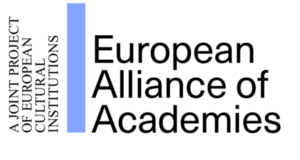
Invitation to propose presentations for the Swedish Research Council Symposium on Artistic Research 2021
Researchers in artistic and practice-based research are invited to submit proposals for presentations at this year’s symposium on artistic research. The symposium will be held on 24–25 November, on the theme of Articulations. The deadline for proposals is 1 September. Articulation is a central feature of artistic research. Articulation can be regarded as a process where the relationship between different elements is made discernible, tangible and possible to mediate, and where the forms, dependencies and consequences of understanding are made visible. The purpose of this year’s symposium is to open up a dialogue about articulation as “theorising in practice”, about knowledge-related freedoms and opportunities, but perhaps also about the rights and obligations that research entails. How does artistic articulation impact on theory formation and concept development? How can artistic articulation be expanded within other research fields? In what way does artistic research follow up the articulations it develops? The symposium will focus on the articulations and the theoretical and conceptual development that occurs within the framework for artistic research, but will also critically consider the importance of articulations as knowledge contributions in more general terms. In order to deepen the discussion, we are inviting proposals for articulations that, in addition to relating to the overall theme, also consciously and creatively relate to the combined online and on-location format of the event. The symposium will be held on 24–25 November and is arranged by the Swedish Research Council, in collaboration with Malmö University (School of Art and Communication/K3) and Inkonst, and will be held in both Swedish and English. The detailed program will be published here: Symposium on Artistic Research 2021 - Vetenskapsrådet (vr.se) VR artistic research symposium 2021 | Malmö University (mau.se)Guidelines for abstracts
Themes We welcome abstracts that address subjects such as:- how articulation, as theorising in practice, can be made conscious and visible, be materialised and changed within the framework for an artistic research project
- how specific articulations can contribute to creating understanding in a certain context
- how artistic articulation can function critically in relation to academia, professions and the market
- how artistic research can contribute to a broadened research discussion on the challenges of conceptual articulation.
- Abstracts for sessions: 500 words
- Abstracts for other presentation formats: 300 words
ABOUT THE FESTIVAL
Tårnby Park Performance Festival is a performance festival with new works and new collaborations between international and local artists across generations and borders, focusing on the unknown and the unfinished. During our 5-day festival we want to trigger your curiosity. We have invited artists from Croatia, Bulgaria, Hungary, Slovenia and Copenhagen amongst other places to show their work in the hills, football courts and common spaces of Tårnbyparken. Through performances, workshops and a daily picnic, we are going to create an open atmosphere, where we can experiment, play and exchange across all ages.THE PROGRAMME
We have made a programme that actively works with the Covid-restrictions and made them artistically productive. We have paired the international artists that were notable to travel into the country with local artists. Together they have created completely new performance pieces, and most of them will be shown with one partner missing. We are hosts for the format Pass it on – three international works have during lockdown been passed on to local performers and are now summoned in Tårnbyparken’s suburban surroundings. We have invited young and established artists to show their works in progress. We invite children and young people to take part in spontaneous workshops, and lastly we organise the event Art in Amager where local artists and institutions are invited to exchange about the future of art entangled in the everyday of Amager. We look forward to seeing you at Tårnby Park Performance Festival. Tårnbypark Allé 22, 2770 Kastrup-
-
- Dr. Charles Carson, Associate professor of Musicology/Ethnomusicology at University of Texas at Austin, USA.
-
-
-
- Dr. Flávia Motoyama Narita, Senior lecturer of Music Education at Universidade de Brasília, Brazil.
-
-
-
- Dr. Kim Boeskov, Postdoctoral researcher at RMC, Denmark.
-
-
-
- Dr. Oscar Pripp, Associate professor of Ethnology at Uppsala Universitet, Sweden.
-
-
-
- Dr. Nan Qi, Associate professor of Music Education at Universidade Federal do Rio Grande do Norte, Brazil.
-
-
-
- Dr. Emily Achieng Akuno, Professor of Music at The Technical University of Kenya.
-
University of Music and Performing Arts Graz | Centre for Gender StudiesThe Fragility of Sounds Lecture Series [Online]For an exchange across disciplines and cultures, this series of online lectures brings together composers, performers, musicians, scientists and researchers in order to explore terrains of music theatre. We look into movement, space and the body in connection with performance and electronic music, as well as into society and environment, identity and gender in the context of composing. We understand music theatre in the widest sense of the term: music theatre is sound moving in/through/with space and time. Music theatre is a collaborative process that necessitates co-operation and collaboration. Further information and links under https://www.fragilityofsounds.org/fragility-of-sounds-lecture-series/ The series is curated by Pia Palme and Christina Lessiak as part of the Artistic Research Project PEEK AR 537 On the Fragility of Sounds funded by the FWF Austrian Science Fund. Join us on an inspiring journey into contemporary music, theatre, listening, and culture: come to explore new ideas, discuss, and critically comment the various results and insights. All lectures are available for free and will be in English. Duration approximately two hours each. Tuesday 9 February 2021 – 5 PM [CET/UTC+1] Elisabeth Schimana: Sound as Score Susanne Kogler: “The fragility of sound” – On Possible Connections between Aesthetics and Politics in the 21st Century Thursday 11 February 2021 – 5 PM [CET/UTC+1] Irene Lehmann: On the theatricality of experimental listening situations Electric Indigo aka Susanne Kirchmayr: From Idea to Realisation – Susanne Kirchmayr speaks about her artistic process Saturday 13 February 2021 – 7 PM [CET/UTC+1] Join us for the dernière online screening of WECHSELWIRKUNG - an experimental theatre and stay on for the artist talk afterwards with Paola Bianchi, Juliet Fraser, Pia Palme, Irene Lehmann and Christina Lessiak Thursday 18 February 2021 – 5 PM [CET/UTC+1] Malik Sharif: Composition and Musicology as Artistic Research: The Case of Ruth Crawford and Charles Seeger Christina Lessiak: How Feminism Matters: An exploration of an artistic research project Thursday 25 February 2021 – 5 PM [CET/UTC+1] Darla Crispin: Fragile sounds, robust text and the mediating potential of mutually-attentive listening Flora Könemann: The silent draw: exploration of the void through embodied listening and drawing – an exercise lecture Thursday 4 March 2021 – 5 PM [CET/UTC+1] Aistė Vaitkevičiūtė: Emerging in the Process: Alternative Musical Thinking Recalling Archaic (Female) Existence Sarah Weiss: Precarious Resistance: On Women Singing Transgression in Ritual Contexts Thursday 11 March 2021 – 5 PM [CET/UTC+1] Veza Fernandez: Tremor – Video performance and artist talk Chikako Morishita: Composing ‘Narrative Dissolution’: Framing Subjectivity in Music Composition Thursday 18 March 2021 – 5 PM [CET/UTC+1] Pia Palme: With. The significance of a preposition for my artistic practice. contact: pia.palme@kug.ac.at |
|
Oslo National Academy of the Arts organizes a week focusing on artistic research from 25 to 28 January. The digital programme consists of workshops, presentations, round-table discussions, screenings, exhibitions, artist talks etc.
Hospitality Vulnerability Vitality
One of the most important tasks we have this year is to find ways to own and to express agency through the challenges that have surfaced as new variables in our practices, our every day, and how we relate to the world. “Hospitality Vulnerability Vitality” sets the framework for "openness” in the face of challenges, in the reception of causal effects from the unexpected, and in allowing for multiple perspectives. It speaks to visions and processes that are inherent to artistic practice, and the positive impact and invigoration that can be achieved when adopted as a strategy for forging new artistic ground. Artistic research is an integrated part of the activities at Oslo National Academy of the Arts and plays a central role in forging a unified artistic community. The Artistic Research Week aims to contribute to a wider understanding of the nature of artistic research, to showcase what is being developed, and how this research relates to the greater disciplinary and socio-cultural contexts. It also aims to increase the discursive level on artistic research, through sharing experiences, insights and knowledge that is generated through practice-based research with faculties, students and a wider audience. This year’s Artistic Research Week activities are open to the public online only. The registration is now open! Welcome!Hospitality Vulnerability Vitality
En av de viktigste oppgavene vi har i år er å finne måter å eie og uttrykke vårt virke gjennom de nye utfordringene som har dukket opp som variabler i vår praksis, vår hverdag og hvordan vi forholder oss til verden. «Hospitality, Vulnerability, Vitality» setter rammeverket for “åpenhet”. Vi står ovenfor nye utfordringer, ser nye årsakssammenhenger fra det uventede, og dette tillater oss å se ting fra flere perspektiver. «Hospitality, Vulnerability, Vitality» snakker til visjonene og prosessene som er iboende i kunstnerisk praksis, den positive og oppkvikkende påvirkningen som kan oppnås når visjonen brukes som strategi der ny kunstnerisk praksis smis. Kunstnerisk utviklingsarbeid og forskning er en integrert del av aktivitetene ved KHiO, og spiller en sentral rolle i oppbygningen et samlet kunstnerisk miljø. Med forskningsuken har vi som målsetting å bidra til en bred forståelse for kunstnerisk utviklingsarbeid og forskningens «essens» for å vise frem hva som er under utvikling og hvordan forskningen relaterer til større disiplinære og sosiokulturelle kontekster. Med forskningsuken ønsker vi å styrke diskusjonen om kunstnerisk utviklingsarbeid gjennom å dele opplevelser, innsikter og kunnskap som er generert gjennom praktiskbasert forskning med avdelinger, studenter og et større publikum. Arrangementene på årets Kunstnerisk forskningsuke vil kun holdes gjennom en KHiO-sentralisert online “hub”. Du kan registrere deg her. Velkommen!Proposition
After an omnipresent “Research Decade,” the concept of artistic research currently seems to be in need of a recharge. Pressing questions are: Should we talk about a postresearch situation or a postresearch condition? Could this be compared with how poststructuralism relates to structuralism as its philosophical comprehension and the elaboration of its consequences? And how could a postresearch condition address contemporary art practices? To answer these questions, it is important to start from the three conceptual spaces that fundamentally determine what we mean by research: creative practice (experimentality, art making, potential of the sensible); artistic thinking (open-ended, speculative, associative, non-linear, haunting, thinking differently); and curatorial strategies (topical modes of political imagination, transformational spaces for encounters, reflection and dissemination) – and to comprehend these spaces in their mutual, dynamic coherence as a series of indirect triangular relationships. From whatever conceptual space one departs, an artistic research practice could signify a transversal constellation – as a creative proposition for thought in action. Yet, that mode of research could never be reduced to a method of one of the three constituents. Thus, artistic research cannot be equated with creative innovation, disciplinary knowledge production, or political activism. It seems urgent now – and this is the starting point of this conference – to profoundly challenge and question the issue of how to articulate and present the condition of the intersection between the three conceptual spaces. For this purpose, an intensive program of workshops, presentations, propositions, screenings, and publications has been developed. See more: https://www.hku.nl/en/study-at-hku/hku-college/pre-phd-programme/the-postresearch-conditionParticipants 2021
19 January
Jan Rosén Katarina Lion Annika Notér Hooshidar Alejandro Bonnet Josefine Wikström Eli Bø och Katrin Brännström Aleksandra Czarnecki Plaude Alexander Skantze20 January
Itte Lundgren Ulrika Tenstam Wilhelm Carlsson Klas Dykhoff Gunilla Pettersson Camilla Reppen21 January
John-Paul Zaccarini Erik Gandini Bengt Bok Tinna Joné Ylva Gustavsson Rebecca Hilton, Ellen J Røed Eli Bø22 January
Costanza Julia Bani Ellen J Røed Anja Susa In addition, SKH's new PhD candidates will present themselves and their research.When and where:
The presentations will either be live-streamed or take place on Zoom. see more: https://www.uniarts.se/english/research-development/research-week/research-week-2021#:~:text=Welcome%20to%20SKH's%20digital%20Research,and%20senior%20researchers%20at%20SKHImage: Kalle Hamm, Fantasy Being Devoured by the She-tiger, 2020.
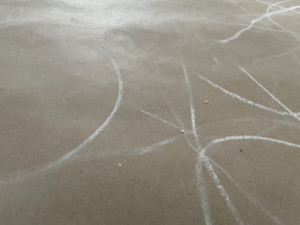
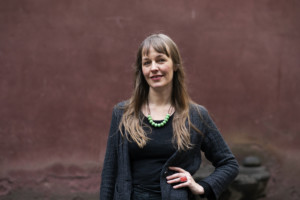
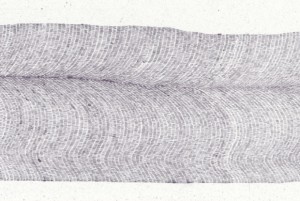
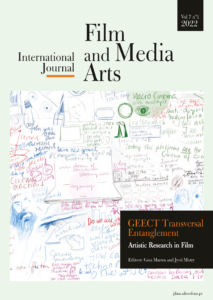
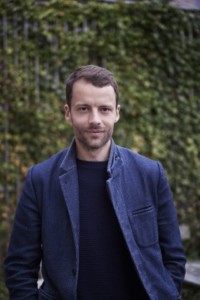
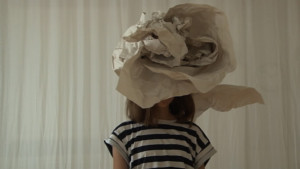
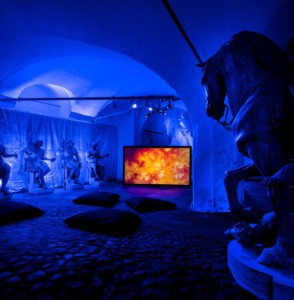
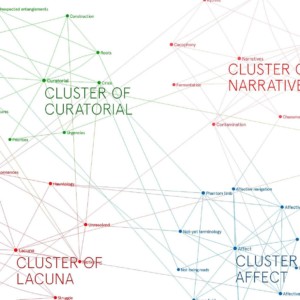
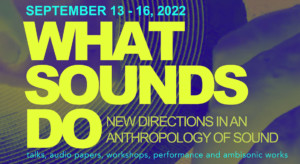
![Conference program Rewilding the Museum[6][1]](https://artisticresearch.dk/wp-content/uploads/2022/05/conference-program-rewilding-the-museum61-1-300x169.png)
![LUF_AITKEN_Doug_190129_0008_Stefan Altenburger[1]](https://artisticresearch.dk/wp-content/uploads/2022/03/luf-aitken-doug-190129-0008-stefan-altenburger1-300x225.jpeg)
